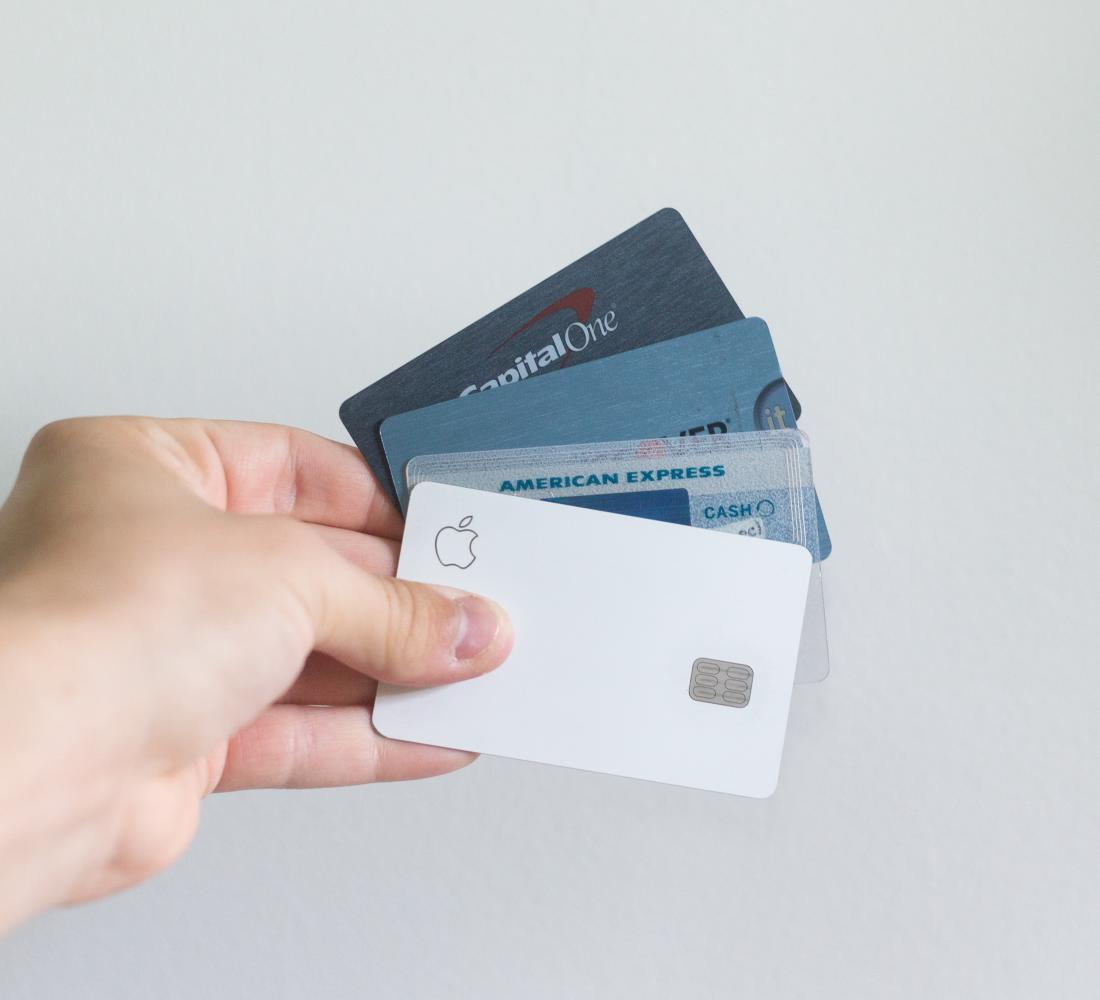Credit card debt is one of the most common financial issues people face today. It is easy to accumulate and difficult to pay off due to the high-interest rates. But ignoring it can lead to a negative impact on your credit score and financial future. This is why understanding the truth about credit card debt and how to tackle it is crucial.
According to a recent study, the average American has about $6,000 in credit card debt with a total of $1.07 trillion in credit card debt in the country overall. It is important to recognize that credit card companies make their money from interest and fees. This means that the longer you carry a balance, the more money they will make off of you. Therefore, paying off your balance in full every month is the best way to tackle credit card debt.
It is also important to understand the impact of credit card debt on your credit score. The amount of debt you have compared to your credit limit, also known as your credit utilization ratio, makes up 30% of your credit score. Ideally, you want to keep this ratio under 30%. Anything above that can negatively impact your score. Additionally, late payments can also harm your credit score, so making payments on time is crucial.
In conclusion, understanding the truth about credit card debt and how to tackle it is key to improving your financial health. If you are struggling with credit card debt, creating a budget, negotiating a lower interest rate with your credit card company, and seeking help from a financial advisor can all be helpful steps towards becoming debt-free. By taking control of your finances and making responsible choices, you can achieve financial freedom and live a more peaceful life.
The Ugly Truth About Credit Card Debt
Credit card debt is a reality that many people face, and it's an issue that isn't always easy to tackle. The first step in overcoming credit card debt is understanding the truth about it. One of the most startling truths is the interest rate on credit cards. Credit card companies are in the business of making money, and they do that by charging high interest rates on balances that are carried over each month. The average interest rate for credit cards in the U.S. is almost 17%, meaning that carrying a balance of just $5,000 can cost over $800 per year in interest charges alone.
Another ugly truth about credit card debt is that it can be incredibly easy to accumulate. With the convenience of online shopping and the ability to make purchases with a swipe or tap of a card, it's all too easy to overspend and find yourself with a hefty bill at the end of the month. Many people use credit cards to cover unexpected expenses, but when those expenses add up, it can be challenging to catch up. Additionally, many credit cards offer rewards programs or cashback incentives, which can entice consumers to use them more often than they should.
However, the most devastating truth about credit card debt is the toll it can take on your finances and your mental health. High levels of debt can lead to stress, anxiety, and depression, which can affect your overall quality of life. It can also impact your ability to obtain credit in the future, making it harder to secure loans for things like a car or a home. It's essential to take control of your credit card debt before it takes control of you.
The bottom line is that credit card debt is a serious issue, and it's not something that should be taken lightly. By understanding the ugly truth about credit card debt and taking steps to tackle it, you can improve your financial situation and reduce the stress that comes with debt.
Why Do We Fall Into Credit Card Debt?
Credit cards can be incredibly convenient and useful, but they can also be a slippery slope into financial trouble. Before you know it, you could find yourself with thousands of dollars of debt and struggling to make the minimum payments.
So why do we fall into credit card debt in the first place? One reason is that we often view credit cards as an extension of our income. When we see something we want, we may not have the cash on hand to pay for it, so we turn to our credit card. This can lead to a cycle of swiping and spending that quickly spirals out of control.
Another reason that people fall into credit card debt is because they don't have a good understanding of interest rates and fees. It's important to read the fine print when you sign up for a credit card so that you're aware of all of the costs involved. Many credit cards have high interest rates, which means that you can end up paying much more than the original cost of the item you charged to the card.
Marketing tactics from credit card companies can also play a role in encouraging people to take on more debt. Offers of cash back, rewards points, and other perks can be tempting, but they also encourage people to spend more than they can pay for. Credit card companies know that consumers are more likely to use their cards if they feel like they're getting something in return, so they often use rewards programs to entice people to use their cards more frequently.
Finally, credit card debt can be a result of unexpected expenses or emergencies. When faced with a sudden medical bill or car repair, for example, some people turn to their credit cards as a short-term solution. Unfortunately, if they can't pay off the balance quickly, that short-term solution can turn into a long-term problem.
The bottom line is that credit cards can be a valuable financial tool when used responsibly, but they can also be a dangerous trap for those who aren't careful. By understanding the reasons why people fall into credit card debt, you can take steps to avoid making the same mistakes.
How to Tackle Credit Card Debt - Tips and Tricks
If you're feeling overwhelmed by your credit card debt, don't fret. With a few adjustments to your spending habits and financial planning, you can start chipping away at your debt and eventually regain your financial freedom. Here are some tips and tricks for tackling your credit card debt:
-
Pay more than the minimum: One of the biggest ways to tackle credit card debt is by paying more than the minimum payment each month. By doing so, you'll not only decrease your balance, but you'll also save money on interest in the long run.
-
Create a budget: Assess your monthly income and expenses to create a budget. Determine how much you can realistically afford to pay towards your credit card debt each month. Remember to prioritize your debt payments in your budget, especially if you have credit cards with high-interest rates.
-
Prioritize your payments: Speaking of prioritizing, when it comes to tackling multiple credit card debts, it's important to prioritize your payments. You can do so by either paying off the credit card with the highest interest rate first, known as the avalanche method, or by paying off the credit card with the smallest balance first, known as the snowball method.
-
Consider balance transfer cards: If you have high-interest credit card debt, consider transferring your balance(s) to a card with a lower interest rate. This will allow you to pay off your debt faster and save on interest. Just be cautious of balance transfer fees and make sure to read the terms carefully.
-
Stop using your credit cards: While you're paying off your credit card debt, refrain from using your cards for purchases to avoid adding to your balance. If possible, put your cards away or consider cutting them up altogether.
Remember, tackling credit card debt takes time and effort, so don't get discouraged if you don't see immediate results. By implementing these tips and tricks and staying disciplined with your finances, you'll be on the path to financial stability in no time.
Creating a Budget and Sticking to It
Now that you've faced the ugly truth about credit card debt and know some ways to avoid falling into it again, it's time to create a budget and manage your finances responsibly. A budget is an essential tool for achieving financial stability, and it's not as complicated as it seems.
First, calculate your monthly income after taxes, and don't forget to include any extra money you earn from side hustles or freelance work. Then, list all of your expenses. Separate them into fixed and variable categories. Fixed expenses are essential bills that cost the same amount every month, such as rent/mortgage, car payments, and insurance. Variable expenses are the ones that change from month to month, such as groceries, eating out, and shopping.
Once you have a clear understanding of your monthly income and expenses, you can set realistic goals for saving and spending. If you're not happy with your current spending habits, make adjustments until you feel comfortable. Try to reduce your variable expenses first, but don't forget to give yourself a little wiggle room for fun activities or emergencies.
To keep yourself accountable, track your spending throughout the month. You can use a spreadsheet, an app, or even a paper planner. The important thing is to update it frequently and make sure you know where your money is going.
Stick to your budget as much as possible, but don't beat yourself up if you slip up sometimes. Learning to manage your finances takes time and practice, but it's worth it in the long run. By creating a budget and sticking to it, you'll gain a greater sense of control over your money and your life.
"To get rich, you have to be making money while you're asleep."
— David Bailey
Paying Off the Credit Card with the Highest Interest Rate First
One of the most important steps in tackling credit card debt is to pay off the card with the highest interest rate first. You might be tempted to pay off the card with the lowest balance first, but paying off the high-interest rate card will save you more money in the long run.
Let's say you have three credit cards with balances of $2,000, $1,500, and $1,000 with interest rates of 18%, 15%, and 12% respectively. If you pay only the minimum balance each month, the $2,000 balance will cost you $4,982 and take over 20 years to pay off, while the $1,500 balance will cost you $3,372 and take almost 15 years to pay off. In contrast, the $1,000 balance will cost you $2,194 and take just over 12 years to pay off.
By paying off the card with the highest interest rate first, you'll save money on interest charges and pay off your debt faster. Once you pay off the highest interest rate card, move on to the card with the next highest interest rate and so on until all of your cards are paid off.
If you have multiple cards with the same high interest rate, focus on paying off the card with the lowest balance first. This strategy is called the debt avalanche method, and it's a highly effective way to tackle your credit card debt.
In addition to paying off your high-interest debt, consider transferring your credit card balances to a 0% interest balance transfer credit card. This can provide temporary relief from high-interest rates and give you time to pay off your balances without accruing additional interest charges.
Remember, paying off credit card debt takes time and effort, but it's worth it in the long run. By focusing on paying off the high-interest rate card first and creating a budget to manage your spending, you'll be on your way to financial freedom.
Consolidating Multiple Credit Card Debts into One Payment
Are you struggling to keep up with multiple credit card payments each month? If you are, you are not alone. Consolidating your credit card debt into one payment system can be a real game-changer for anyone struggling with debt. By consolidating, you can enjoy the benefits like lower interest rates, simplified finance management, and fewer late payment fees.
One of the great advantages of consolidating your credit card debts is that you get to combine your debts into one loan with a fixed interest rate, usually at a lower rate than the sum of the individual rates on your credit cards. This means you can save some money on your monthly payments and make paying off what you owe easier and faster.
However, don't forget to read and understand the terms and conditions of the loan agreement and the costs of the new loan before signing up. Make sure you know the length of the repayment period and any early-repayment or borrowing fees that may apply. Also, if you are not careful, consolidation can result in charging even more than you previously owed.
Consolidation of credit card debts is not a panacea, but it can make things easier for you. At the end of the day, it depends on your individual situation whether consolidating is the right approach for you. With the right approach, it can empower you to take better control of your finances and life. Remember, with disciplined spending and budgeting you can stay on top of your debts and can embrace financial freedom.
Negotiating with Creditors and Credit Card Companies
If you find yourself struggling with credit card debt and you can't seem to make a dent in paying it off, don't despair. There are ways to make it more manageable. One option is to negotiate with your creditors or credit card companies.
In many cases, creditors and credit card companies are often willing to work with you to create a payment plan that is more feasible for you. The first step in doing this is to call your creditor or credit card company and explain the situation. Be honest about your financial difficulties and express your willingness to make things right.
One strategy you can use is to ask for a lower interest rate on your card, which will help make payments more affordable. This is especially true if you have a good track record with your payments. You can also negotiate to have late fees and other penalties waived.
If you're struggling to make any payments at all, consider proposing a settlement. This means you offer to pay a portion of your outstanding balance upfront in exchange for the creditor forgiving the remaining balance. As a last resort, you can also consider credit counseling or even bankruptcy, but this should be done with the guidance of an experienced financial advisor.
Remember, the key to successfully negotiating with creditors is to be proactive and stay positive. Don't let debt weigh you down. Take action today to take control of your financial future and work towards a debt-free life.
Seeking Professional Help
If you are struggling with credit card debt and can't find a way out of it, seeking professional help may be your best option. Credit counseling services can help you understand your situation, develop a plan to pay off your debt and provide support throughout the process. These services are usually offered by nonprofit organizations and are either free or charge a minimal fee.
One important thing to keep in mind is that not all credit counseling services are created equal. Look for a trustworthy organization that is accredited by a third-party organization such as the National Foundation for Credit Counseling. Also, be wary of organizations that promise to “erase” your debt or charge hefty fees upfront.
During your first meeting with a credit counselor, they will help you create a budget and review your debts. They will then develop a debt-management plan that suits your situation. This plan can help you pay off your debts in a reasonable amount of time, usually within three to five years.
Moreover, credit counselors can also negotiate with your creditors to reduce interest rates, eliminate fees, and possibly lower your overall debt. They can become the intermediary between you and your creditors, making the communication process easier and less stressful for you.
Before committing to any credit counseling service, make sure you understand the fees, services offered, and qualifications of the organization. Remember that credit counseling is just one of many options to help you tackle credit card debt. You can always speak with a financial advisor or bankruptcy attorney to determine if another solution would be more appropriate for your situation.
In conclusion, seeking professional help is a great option to help you overcome credit card debt. By choosing a trustworthy credit counseling service, you can develop a debt-management plan that works for you and get support throughout your journey. Don't be afraid to reach out for help – you don't have to tackle this alone.
Conclusion
Dealing with credit card debt can be overwhelming, but it's important to remember that you're not alone. Many people struggle with credit card debt, but there are steps you can take to overcome it. The most important thing is to take action and not let your debt spiral out of control. Don't ignore your credit card debt, as it will not disappear.
Remember, tackling credit card debt requires patience, discipline, and perseverance. You may need to make sacrifices and cut back on expenses, but in the end, it will all be worth it. You'll feel a sense of relief and freedom once you're debt-free, but you must be willing to put in the effort in the meantime.
Creating a budget, paying off the credit card with the highest interest rate first, consolidating multiple credit card debts, negotiating with creditors, and seeking professional help are all viable options to tackle credit card debt. It's up to you to decide which option works best for your situation. The most important thing is to take action.
In summary, credit card debt can be a heavy burden, but it's not insurmountable. By taking action, creating a plan, and sticking to it, you can overcome your debt and achieve financial freedom. It won't happen overnight, but with patience and persistence, you'll get there. Remember to stay positive and focused on your goal, and you'll be well on your way to a debt-free life.
 George O'Malley
George O'Malley 


